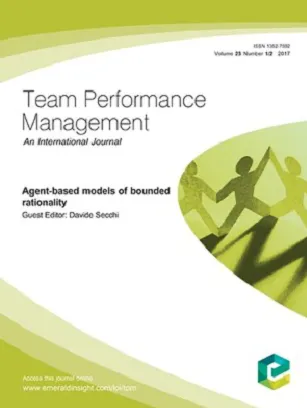The purpose of our study was to explore team process-sequences within and across performance episodes and their relation to team performance. In doing so, we respond to the call for examining the temporal and dynamic aspects of teams.
Data (i.e. observations and audio recordings) was collected from stand-up meetings of three high-performing Scrum teams. Specifically, team processes were assessed at six points in time during two consecutive performance episodes (i.e., beginning, midpoint, end). After content coding the data, lag sequential analyses was used to examine patterns of executed team processes. We determined whether particular process-sequences occurred significantly different from others. Our results showed that teams shifted between transition and action phase processes action. During and across performance episodes, process-sequences primarily consisted of transition processes. When teams executed action process-sequences, the focus was on monitoring.
We hope that our findings can support researchers to more fully investigate the relationship between process-sequences and team performance across various team types. However, limitations (e.g. small sample size, unknown point of teams’ life cycle and focus on explicit team processes) should be considered. This study contributes to a better understanding of the temporal and dynamic nature of team processes by (1) analyzing the team process and process-sequences over time and by (2) considering their natural ordering.
Georganta, E., Burke, C.S., Merk, S., & Mann, F. (2021). Understanding how team process-sequences emerge over time and their relationship to team performance. Team Performance Management, Vol. ahead-of-print, No. ahead-of-print. doi: 10.1108/TPM-03-2020-0018
